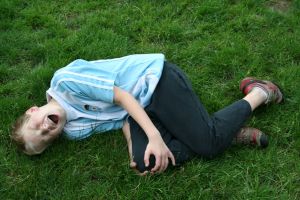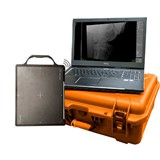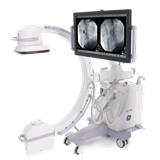The same concept of "attentional focus" comes in to play when the doctor tries to distract a patient while giving them a tetanus booster.
"When the person is attending to the pain, they rate the pain higher," said Professor Catherine Bushnell.
The Canadian expert used brain imaging to analyse how psychological factors affect a person's feeling of pain.
"Activity in pain pathways (are) altered by attention state, positive and negative emotions, empathy and the administration of a placebo," she told a conference of health professionals gathered in Hong Kong on Friday.
She used odours and images to alter people's moods and found that their pain "unpleasantness" was far less if they were feeling happy.
She also found that the anticipation of pain got people so worked up that they found the feeling more intense.
Malaysia-based pain expert, Mary Cardosa, echoed these thoughts, giving the example of a child's fear of needles.
In China, she told reporters, the children "happily go along for their acupuncture sessions.
"It's not really that they don't feel the pain, it's sort of an acceptance," she said.
Meanwhile, Australian children who aren't as exposed to the idea of being pricked, freak out at the thought of a jab.
This anticipated pain underlies the theory of a placebo pain killer, said Prof Bushnell from the McGill University in Montreal.
Meanwhile, Dr Cardosa said there's some evidence to suggest genes play a part in pain tolerance.
She gave the very rare example of a family in Pakistan, who have been identified as carrying a mutated gene that has made them feel no pain.
"If you're totally insensitive to pain ... your life would be shortened because you would not be able to protect yourself," she said.
People experience pain in different ways - some will scream while others won't flinch - and it's hard to pinpoint why this is because there are too many variables, Dr Cardosa said.
"When we talk about pain we need to individualise it," she said.
"Is there a difference in the actual amount of stimulus you can take or is a matter of how they express themselves?"





-160x160-state_article-rel-cat.png)

















